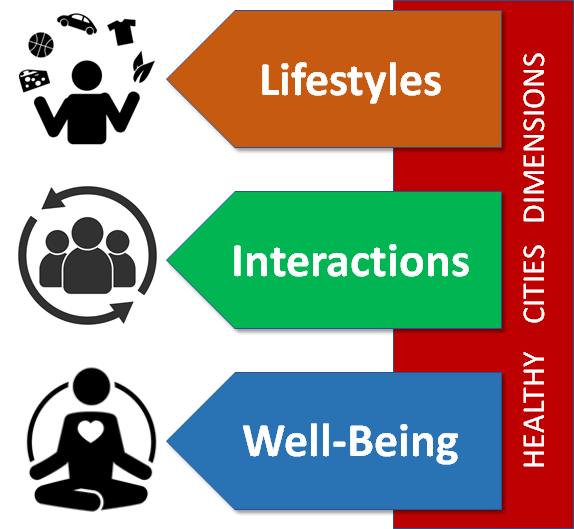 |
 |
 |
SD Research Focus
Healthy Cities
 |
G DRC views the health sector from the perspective of environment and urbanization. Rapid growth of cities have put tremendous pressure on local governments to effectively and securely manage urban and built environments. But the degrading urban environments have consequently also created a number health risks - from waste, water, air, land and building related risks.Health is a cross-cutting feature that influences much of the work that GDRC carries out. For effective environmental action to take place at the micro and individual level, it is necessary to intrapolate global issues to issues that will affect an individual or household.
Individual and household health is a critical concern that will help bridge global environmental problems to local lifestyles and decisions. For example, how can we look at climate change from the perspective of the individual and household health risks that it poses? This interlinking may help accelerate the action needed for climate change to be mitigated! |
|
|
| Explore GDRC's work on food security [Lifestyles] and waste management [Well-being] |
|
Highlights of GDRC Research
- Sustainable Development: Healthy Cities as Lifestyles, Interactions and Well-being
Concept Note Series E-203. - Creating Livable Urban Spaces: Fostering Active Life Choices
Policy Analysis Series C-020. - Sustainable Development: Healthy Cities and the Concept of a 15-minute City
Explainer Series C-077. - Health can be looked at from different perspectives. Within GDRC's programmes, the transdisciplinarity of health issues can be explored through a number of themes such as: poverty gender urban environments informal sector SDGs Water resources waste management innovative communities
Research Resources:
- WHO, "Healthy Cities: Effective Approach to a Rapidly Changing World" 2020
- GRNUHE, "Improving urban health equity through action on the social and environmental determinants of health" 2010
- Healthy Cities - case studies
- WSSD (Rio+10): Framework for Action - Health and Environment
- One Health Approach
If you are interested in contributing to this research, please do contact us at the email listed below.
 |
Return to Sustainable Development Contact: Hari Srinivas - hsrinivas@gdrc.org |
